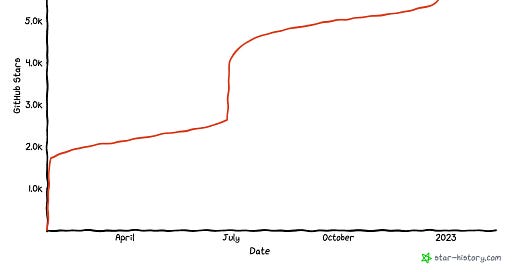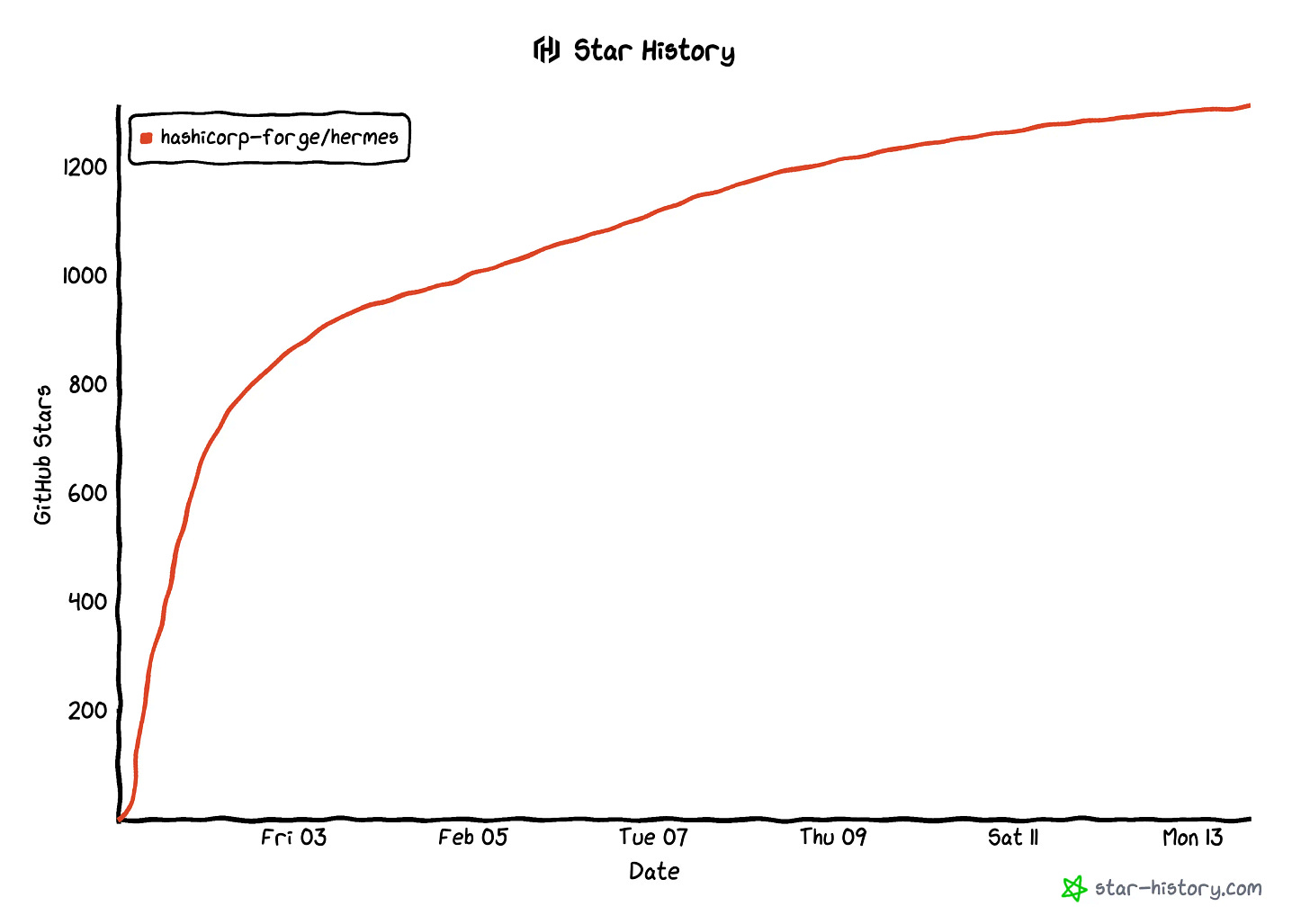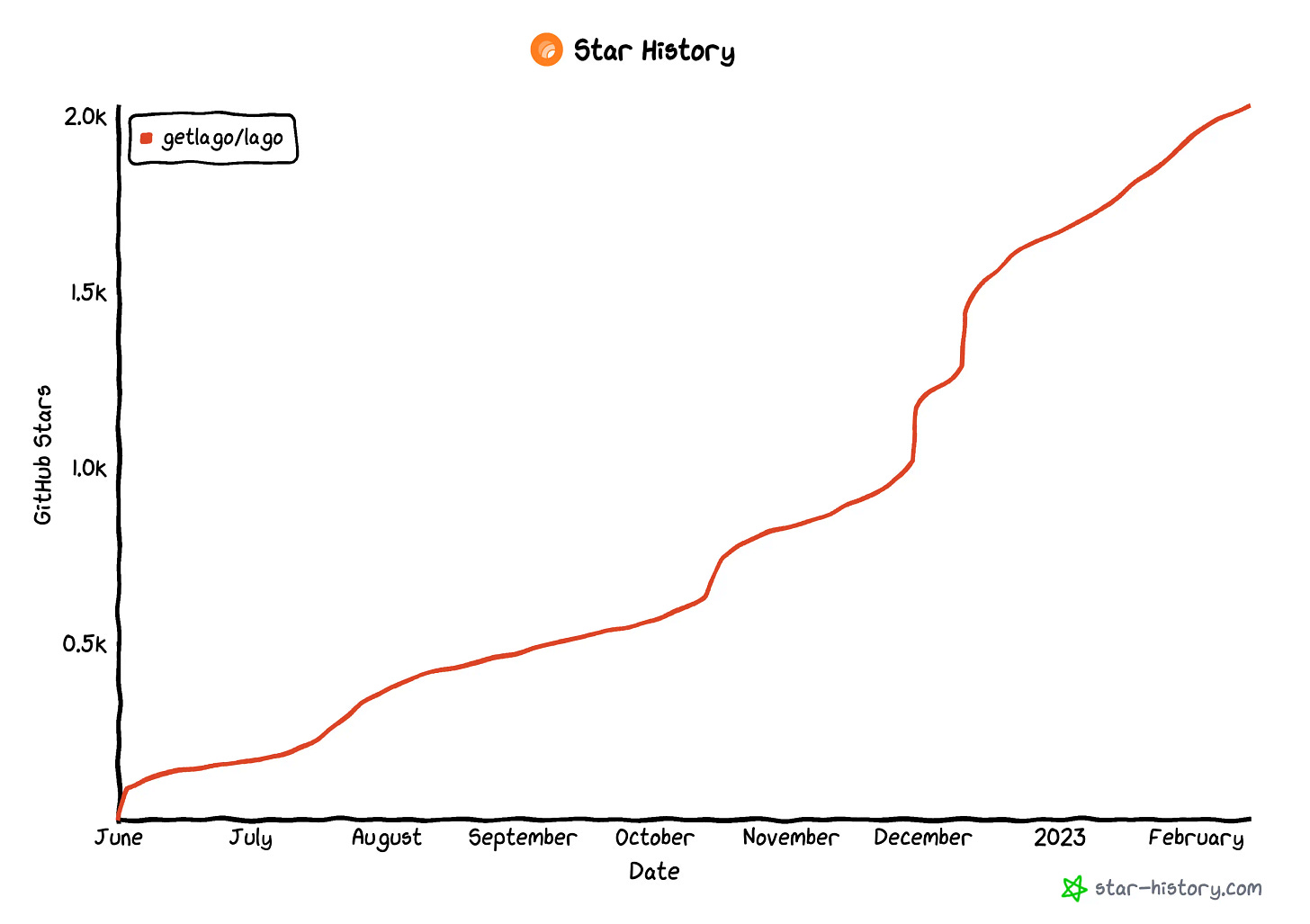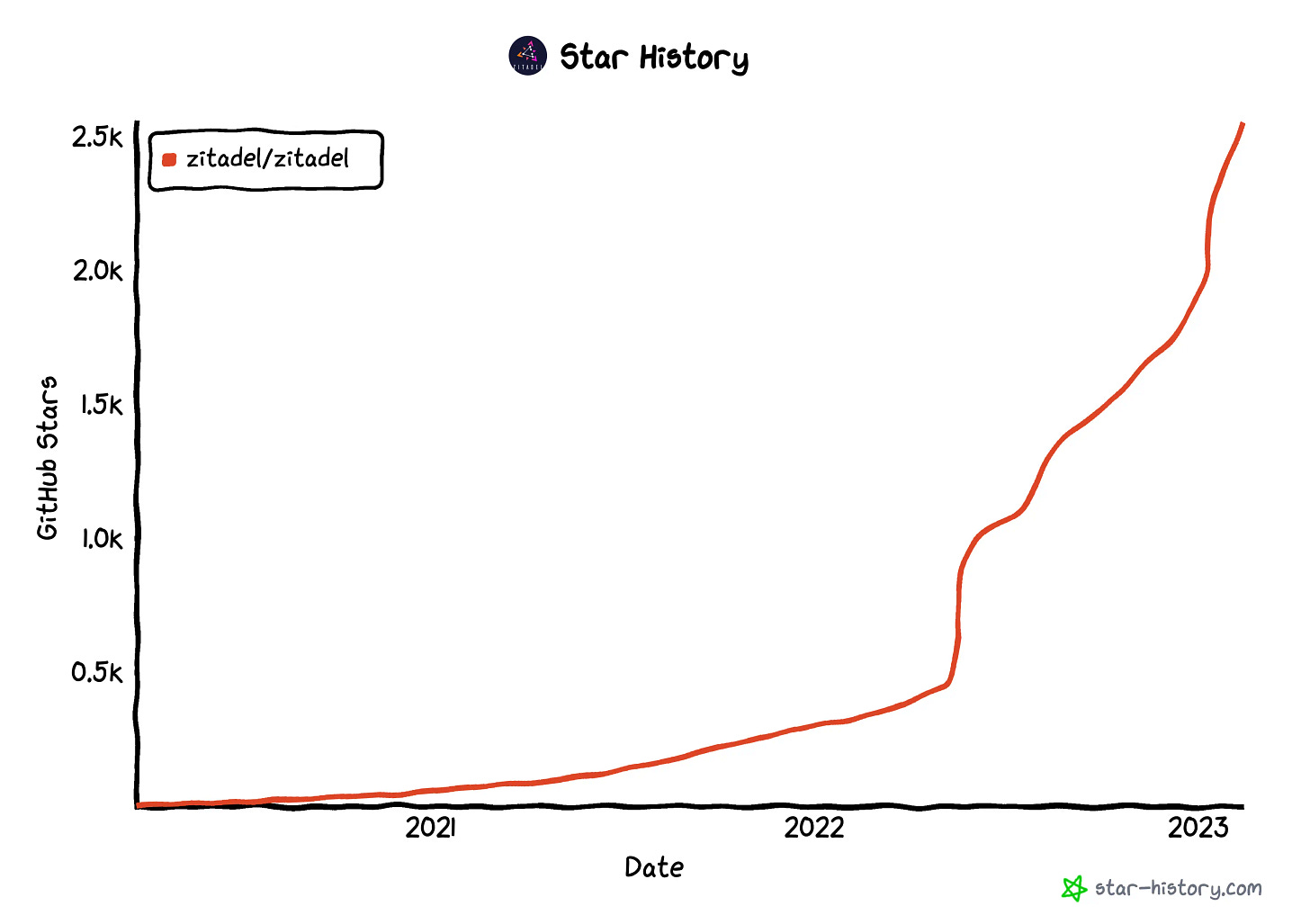DevTools Brew #1: Insights from Publicly-Traded Devtool companies, Story of Rust, Hashicorp CTO interview...
Hi there, it’s Morgan Perry, co-founder of Qovery, and this is DevTools Brew newsletter, where I provide you with a weekly roundup of the latest trends and insights in the infrastructure and devtools industry.
To receive it in your inbox each week, subscribe here!
Welcome to the DevTools Brew #1!
In this edition, you will find:
💸 The Latest Funding Rounds in the Devtools & Infrastructure industry
📈 The Fallacy of Forever Bottoms Up For Devtools
🦀 How Rust Went from a Side Project to the World's Most-Loved Programming Language
⭐ Star History Monthly Pick
🎤 A Podcast interview with Armon Dadgar, Cofounder & CTO of HashiCorp
I hope you enjoy this sneak peek, and look forward to sharing more insights with you soon.
Let's dive in!
💸 Latest Funding Rounds
Vantage, a startup that helps businesses better understand their cloud infrastructure spend raised a $21 million Series A.
Speedscale, a Kubernetes traffic replication startup that simulates production conditions raised a total of $9 million in a combination of pre-seed and seed funding.
Prog.AI, a startup that helps recruiters find technical talent by inferring skills from GitHub code raised a $1 million Pre-Seed Round.
Wiz, the cloud security platform, now valued at $10B raised $300 million in a Series D funding.
Archetype, an early-stage startup that wants to help developers build a metered API billing solution announced a $3.1 million seed investment.
Cubist, a security-focused Web3 dev tools provider, raised a $7M Seed Round to make dApp development more efficient, secure, and scalable.
📈 The Fallacy of Forever Bottoms Up For Devtools
The impact of enterprise sales on developer tool companies and their ability to go public is explored in a recent article by Jordan Segall. The author analyzed S-1 data from 28 major developer tool companies that went public in the last decade that developer tool companies often rely on enterprise sales to drive significant revenue and achieve success in the public markets. The key learning from this article is that developer tool companies often rely on enterprise sales to drive significant revenue and achieve success in the public markets.
Key takeaways:
Most developer tool companies use a top-down sales approach and larger-ACV strategy before going public.
Even companies with many small customers often add a top-down sales approach and larger-ACV strategy before going public.
A small number of enterprise customers can significantly impact a company's revenue and ability to go public.
The average ARR/customer for companies that went public in the last decade was $92k, with a median of $35k.
Many companies specified the number of paying customers with contracts paying $100k+ per year and >$1M+ per year.
Even companies with lower ARPU can have a few enterprise customers that contribute a significant portion of their revenue.
Companies in all categories, including cloud infra and devtool companies, are significantly impacted by enterprise contracts.
Sales efficiency does not always correlate with ARPU, implying that both low-volume/high ACV and high-volume/low ACV types of business require high sales and marketing spend. However, there are some very high sales efficiency companies.
Read the full article here.
🦀 How Rust went from a side project to the world's most-loved programming language
The story starts with Graydon Hoare, a computer programmer at Mozilla, who decided to create a new computer language after the elevator in his apartment building crashed due to memory problems.
Rust, today used by 2.8 million coders, is designed to be a fast, safe, and concurrent language that allows developers to build reliable and efficient software.
Hoare began working on Rust in 2006 while he was a graduate student at the University of British Columbia. Over the years, he continued to refine Rust, and in 2010 he released it as an open-source project.
Since its release, Rust has gained popularity among developers due to its performance and safety features. It has been adopted by companies like Mozilla, Dropbox, and Microsoft, and is used to build a wide range of applications, from web browsers to operating systems.
Hoare's work on Rust has earned him recognition in the programming community, and he has received awards such as the ACM SIGPLAN Programming Languages Software Award and the Mozilla Research Grant. He continues to work on Rust and is focused on improving its usability and adoption.
If you're curious about how Rust became the most-loved programming language in the world, you should read this fascinating article
⭐ Star History Monthly Pick
Star History's Monthly Pick features a collection of fascinating open-source projects that were shared on StarHistory Twitter account.
The selected OpenSource projects over the past month:
PRQL is Pipelined Relational Query Language, pronounced "Prequel" (just the opposite of SQL/Sequel). Like SQL, PRQL is readable and declarative; however, unlike SQL, it supports abstract concepts such as variables and functions. Moreover, PRQL is linear: each query line converts the result of the previous line. This should make writing PRQL statements much more straightforward.
Hermes is HashiCorp's newly open-sourced document management system. Previously an internal tool, it is designed to help team members write, review, approve, discover, and revoke documents. It currently supports Google Workspace, but it tops Google Docs in that you can directly request reviews, which is fantastic.
Lago, a metering and usage-based billing tool that can be seen as an open-source alternative to Chargebee, Recurly, or Stripe Billing. You can deploy it yourself (the open-source version) or use their cloud version. Dealing with complex billing logic is a headache for most companies, but Lago is a convenient low-code tool that allows users to create billing metrics and plans directly using the UI or API.
ZITADEL, an Auth0's open-source alternative, is a user login and account management solution that comes in both open-source and SaaS versions, which raised a $2.5M seed round in 2022. Their vision is to let developers focus on building applications without caring about user identity management. Love how rigorous they are in every little detail, you'd want that for your authorization system!
Source: https://star-history.com/blog/star-history-monthly-pick-202301
🎤 Interview with Armon Dadgar, Cofounder & CTO of HashiCorp
Armon Dadgar is Cofounder & CTO of HashiCorp, the software infrastructure & security automation company that works with open source projects such as Terraform, Vault, Consul, Vagrant, Packer, and Nomad.
HashiCorp went public in late 2021 and currently has a market capitalization of $6B. In this podcast interview episode, you will learn the timeline from project release to mass adoption, the importance of focusing on user problems rather than a specific technical solution, incorporating the right user feedback, the hard decisions he had to make as a leader, and learnings from 9+ years at HashiCorp.
It’s already over! If you have any comments or feedback, Let’s talk about this together on LinkedIn or on Twitter.
Thanks for reading,
Morgan
Please share DevTools Brew with your friends, and subscribe








Thank you Morgan!
This is really useful and very well summarized. Can't wait for next ones